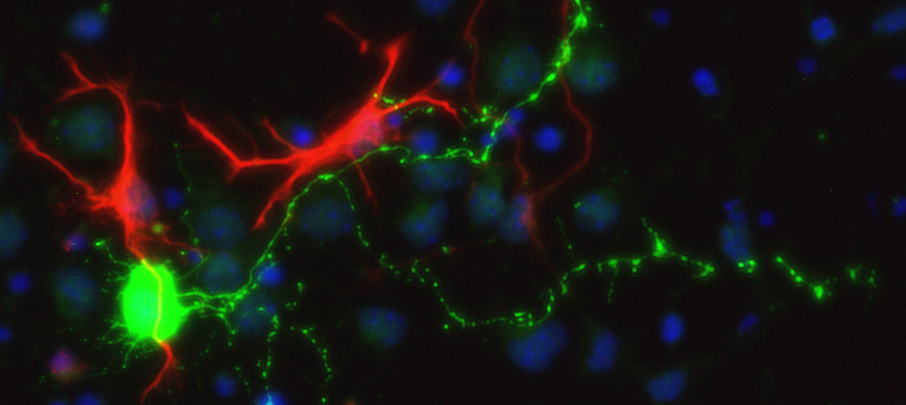Tag: Neurology and Neuroscience
-

Cilia Defects Linked to Schizophrenia
Mutations in PCM1, a gene involved in the formation of cilia, were linked with schizophrenia in a variety of animal models and in human genome analysis, according to a recent study.
-

Uncovering the Impact of Protein Mutations in Parkinson’s
Northwestern scientists have determined how two protein mutations responsible for the impaired motor function in Parkinson’s disease independently disrupt neuron activity.
-

Investigating the Biology of Aging
Feinberg investigators are breaking down the mechanisms of aging and designing solutions to extend healthy living.
-

Les Turner Symposium Celebrates Scientific Discovery in ALS
The 10th Annual Les Turner Symposium on ALS — the first held virtually — featured scientific presentations, updates on innovative clinical trials and a question-and-answer session for patients and caretakers.
-

Proteins on Neuron Surfaces Prove Pivotal for Communication
A cell-surface protein is essential for proper microcircuit function in the brain, according to a study published in Nature Communications.
-

Astrocytes Play Unexpected Role in Parkinson’s Disease
Astrocytes may play a protective role in Parkinson’s disease, slowing alpha-synuclein accumulation in neurons, according to a study published in The Journal of Neuroscience.
-

Inflammation Linked to Alzheimer’s
A new study provides a missing link between inflammation and protein deposits that contribute to Alzheimer’s disease.
-

Understanding Mitochondrial Dysfunction’s Impact on Neurological Diseases
A recent Northwestern Medicine study may improve the understanding of mitochondrial dysfunction and its impact on the development of neurological diseases.
-

Advancing Deep Brain Stimulation for Parkinson’s
A novel deep brain stimulation device significantly improved quality of life for patients with advanced Parkinson’s disease while also reducing common physical side effects from medication, according to findings published in The Lancet Neurology.
-

AI-Enhanced Approach Offers New Hope for Earlier Autism Diagnoses
A Northwestern Medicine scientist and collaborators have used an AI-enhanced precision medicine approach to combine multiple views of human brain development as they seek to provide a roadmap for what causes subtypes of autism spectrum disorder.






